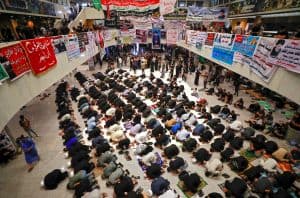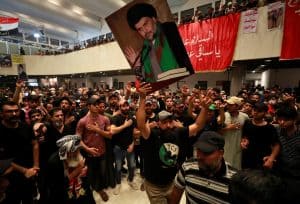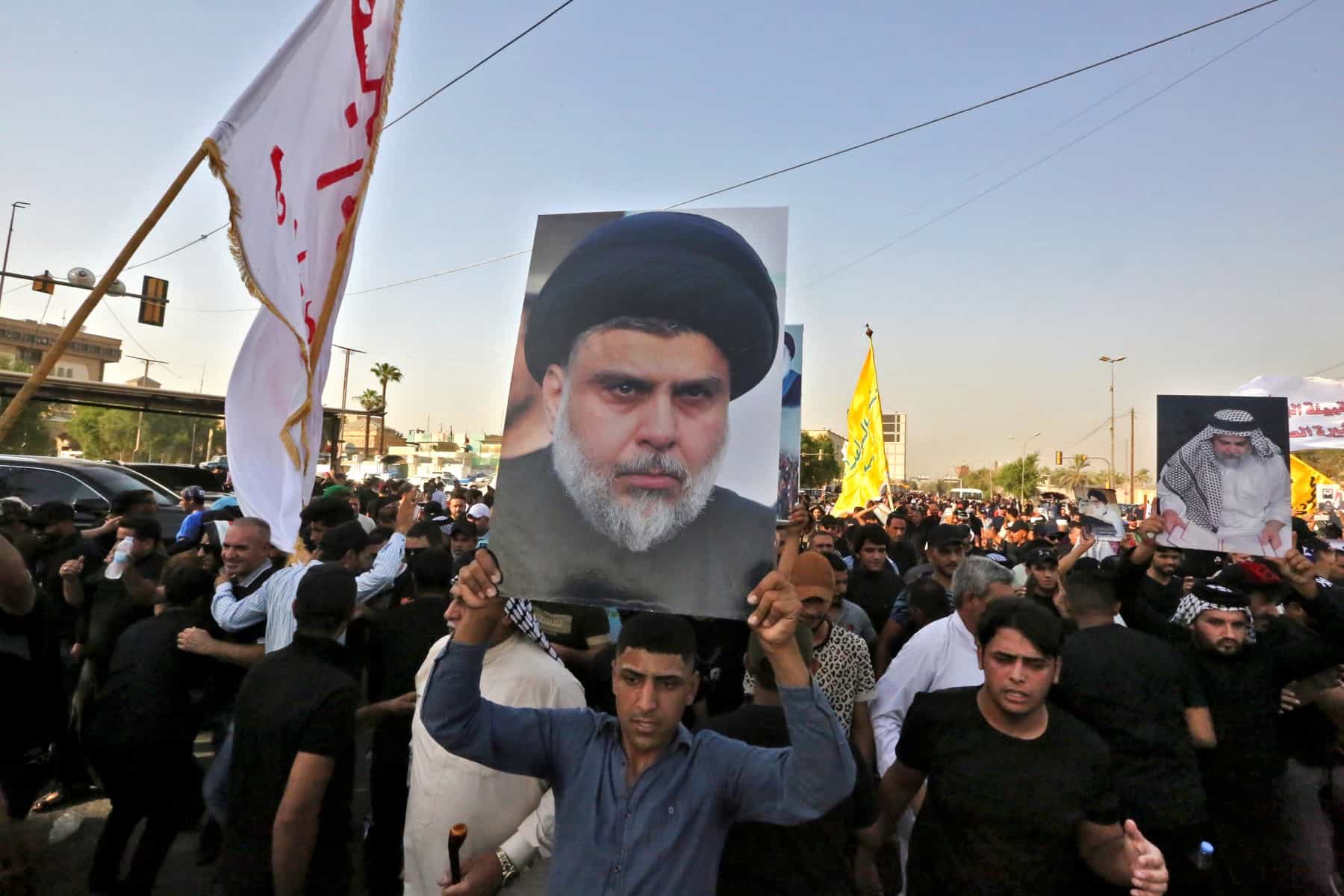As Sadr’s supporters occupy parliament for a sixth day, is the powerful cleric bluffing? Or could his call see a negotiated end to months of political deadlock in the oil-rich but impoverished country?
Why urge an early vote?
In multi-confessional and multi-ethnic Iraq, government formation has involved complex negotiations since a 2003 US-led invasion toppled dictator Saddam Hussein.
Sadr’s bloc emerged from elections in October as the biggest parliamentary faction, but still far short of a majority.

In June, his 73 lawmakers quit in a bid to break a logjam over establishment of a new government.
That led to a rival Shiite bloc, the pro-Iran Coordination Framework, becoming the largest in parliament.
Its nomination of former cabinet minister Mohammed Shia al-Sudani as prime minister angered the Sadrists and triggered their occupation of parliament.
“Sadr expects to be the senior partner in any new government. Otherwise he will continue to block government formation,” said assistant professor Fanar Haddad of the University of Copenhagen.
“Likewise, he cannot allow parliament to reconvene without his MPs.”
Parliament can only be dissolved by a majority vote, according to the constitution. Such a vote can take place at the request of a third of lawmakers, or by the prime minster with the president’s agreement.
According to Ihsan al-Shammari, a political scientist at the University of Baghdad, Sadr’s call for early elections aims to ensure “his return to parliament with more seats than before”.
What’s the stance of Sadr’s opponents?
The Coordination Framework alliance includes lawmakers from the party of former prime minister Nuri al-Maliki, a longtime foe of Sadr, and the Hashed al-Shaabi, a pro-Iran ex-paramilitary network now integrated into the security forces.
Hamdi Malik and Michael Knights of The Washington Institute for Near East Policy say the Framework is divided.
Its hardliners are led by Maliki whose proxy is Sudani and Qais al-Khazali, head of the Asaib Ahl al-Haq force which is part of the Hashed.
They favor a “confrontational stance” that includes forming a government and purging Sadr’s followers from state agencies, the analysts wrote.
Thousands of their supporters marched through Baghdad Monday in a protest against Sadr’s actions.

However, the views of another camp within the Coordination Framework appear to be ascendant.
They favor “a slowing-down of the government formation process and an attempt to bring the Shiite house back closer together by wooing Sadr with inducements”, Malik and Knights said of this group, led by Hadi al-Ameri, who heads a Hashed faction.
Shammari said that if the Framework opposes holding early elections, this would be in the hope of gaining concessions such as changes to the electoral law, the election commission, “or even on formation of the government”.
Haddad notes that Iraqi politics “often skirt the edge of the abyss before the actors involved decide to resolve their differences behind closed doors”.
A deal between Sadr and the Coordination Framework is still possible, he says.
Risk of violence?
Political scientist Ali al-Baidar said that what happens next depends on Sadr’s adversaries.
“If they persist, Sadr can escalate and paralyze the executive, paralyze the capital,” Baidar said.
He views the occupation of parliament as a “warning addressed to the political class about what could occur if they don’t respect Mr Sadr’s wishes”.
With armed groups linked to the various political factions in Iraq, the United Nations has warned about the risk of political tensions escalating.
But analysts say Iran, which backs groups in the Coordination Framework, doesn’t want violence.
Tehran will seek to “prevent the Coordination Framework and particularly the armed factions, of getting to the point of confrontation”, Shammari said.
But clashes could still erupt and might be difficult to control, he added.







